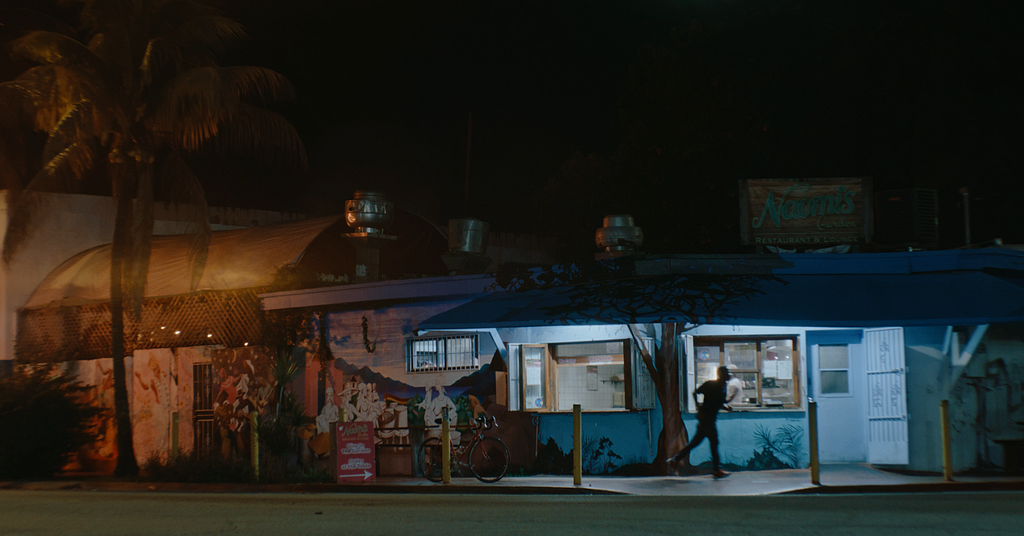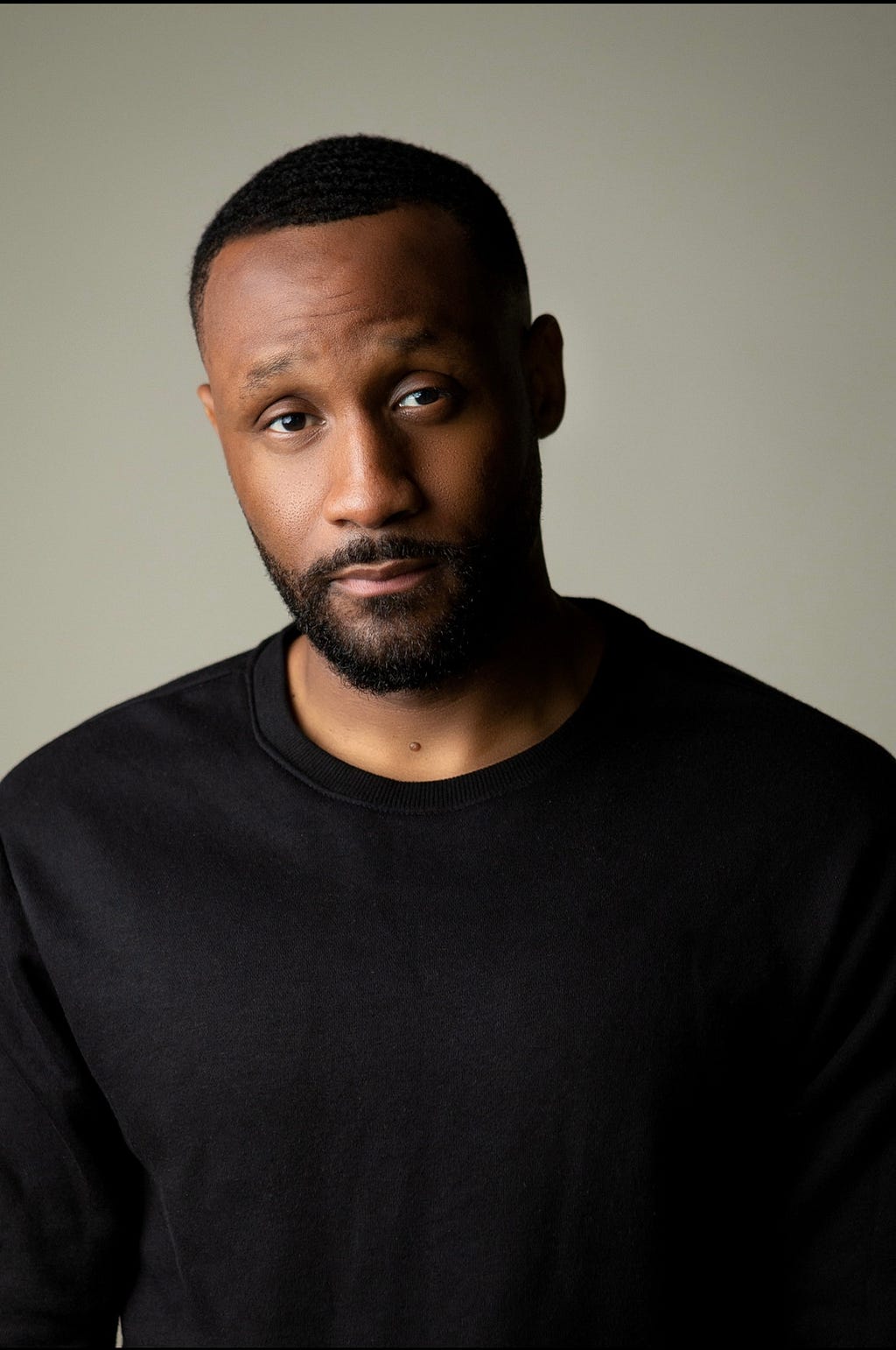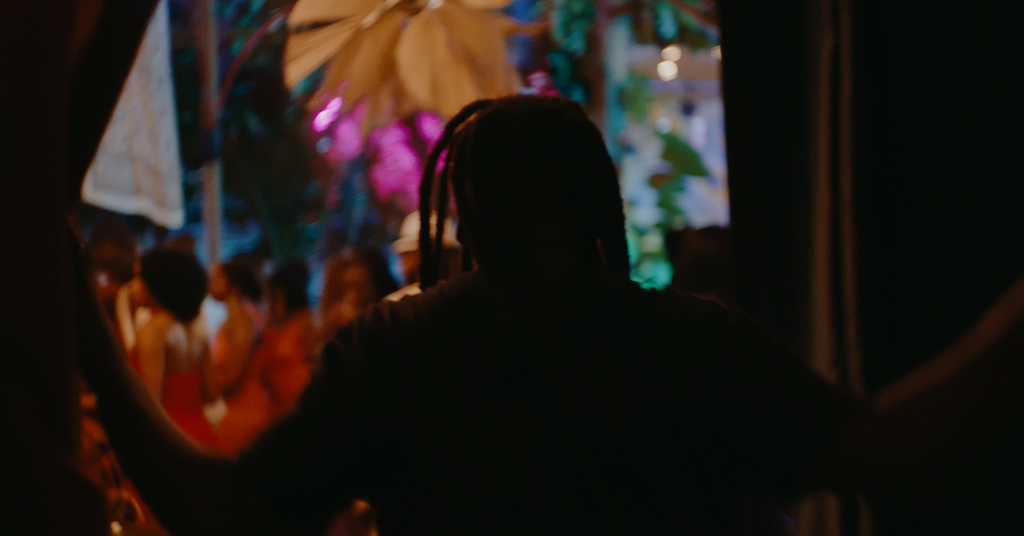Filmmakers Making A Social Impact: Why & How Filmmaker Al’Ikens Plancher Is Helping To Change Our World

Be mindful and present. — Life is made up of an infinite amount of fleeing moments. And the only way to really enjoy it to the fullest is to stay present during each moment no matter what. It’s tough, but I’m enjoying my journey as a filmmaker more now because I get to be present, be grateful that I get to write today or be grateful that I get to meet a potential DP for my project. Every bit of the process is fun. It wasn’t like this and the journey felt like a Herculean effort, now it’s just is.
As a part of our series about “Filmmakers Making A Social Impact” I had the pleasure of interviewing Al’Ikens Plancher.
Al’Ikens Plancher is a writer-director from Port-Au-Prince, Haiti. Having started high school at 12, and college at 16, Plancher had multiple career options at his disposal but chose to pursue his childhood dream of becoming a filmmaker. Throughout the years, he’s worked in various positions in TV & Film such as being a Showrunner’s Assistant on THE CHI (Showtime) and YELLOWSTONE (Paramount Network). His short films have been screened at a variety of festivals, including a world premiere in competition at TRIBECA FESTIVAL. Currently, he is promoting his fictional narrative podcast, Prestige, while working on his debut feature, Boat People.
Thank you so much for joining us in this interview series! Our readers would love to get to know you a bit better. Can you tell us a bit of the ‘backstory’ of how you grew up?
Yes, I grew up in Port-Au-Prince, Haiti. My parents made sure we had a great childhood. My mother used to take us to the movies, that was the highlight of the school year, going to watch a movie on saturday then coming back to school on monday and telling your friends all about it. And that’s where my love for movies started.
Can you share a story with us about what brought you to this specific career path?
Growing up in Haiti, we didn’t always have power, so, it was very hard for me at times to watch a film from start to finish. A lot of the time, I would watch a movie right at the middle or I would catch everything up to the climax. So when the power went out, I had to make up the rest, and re-enact the rest by myself or with my action figures. And over time, I developed a skill of telling or crafting stories. It wasn’t until much later in life that I made a conscious decision to put my stories down on paper. I was just having fun, making up stuff and telling myself that one day I would like to make movies.
Can you share the funniest or most interesting story that occurred to you in the course of your filmmaking career?
Yes, I was 90 minutes late to my first P.A. gig… with all the gear. Yeah, I know.
Who are some of the most interesting people you have interacted with? What was that like? Do you have any stories?
Truthfully, I find everyone interesting on some level. The cool thing about the film and tv industry, it’s a real melting pot of personalities and backgrounds. So, this Grip is interesting, then this big time TV Director is as interesting, people are just people.
None of us are able to achieve success without some help along the way. Is there a particular person who you are grateful towards who helped get you to where you are? Can you share a story about that?
Yes, both my parents, but my mother specifically. And my uncle, my mother’s younger brother. They both supported me in their own way. The day I told my mother that I wanted to pursue filmmaking and not go to law school, she almost had a heart attack. That same day, I told my uncle and he was so excited and proud. I hadn’t accomplished anything, but he was just so happy for me.
Can you please give us your favorite “Life Lesson Quote”? Can you share how that was relevant to you in your life?
“Just do it.”
I believe the best way to navigate through life is to be proactive no matter what. Take the time you need to take, but always be proactive. Just do it, there’s nothing much to it.

I am very interested in diversity in the entertainment industry. Can you share three reasons with our readers about why you think it’s important to have diversity represented in film and television? How can that potentially affect our culture?
Embracing diversity in film and television is vital for reflecting the real world, broadening perspectives and empathy, and unlocking the creative potential of storytelling.
By championing diversity, we foster a more inclusive and equitable entertainment industry that empowers individuals, cultivates understanding, and enriches our collective cultural landscape
What are some of the most interesting or exciting projects you are working on now?
I’m currently working on my debut feature called BOAT PEOPLE. It’s about the Haitian refugees that the U.S. detained in Guantánamo Bay without basic rights in 1991.
Also, I’m currently promoting my new series, PRESTIGE, which is a narrative fictional podcast set in 1813 Haiti. You can now binge season 1 wherever you listen to podcasts. It’s spicy.
Which aspect of your work makes you most proud? Can you explain or give a story?
The fact that an idea in your head can be manifested into reality is something to admire.
It all starts with a blank page. Literally nothing, then next thing you know with some money, and a group of other creatives, that blank page is on the screen at Tribeca Festival. Amazing.

Ok super. Here is the main question of our interview. What are your “5 things I wish someone told me when I first started” and why. Please share a story or example for each.
1) Be mindful and present.
Life is made up of an infinite amount of fleeing moments. And the only way to really enjoy it to the fullest is to stay present during each moment no matter what. It’s tough, but I’m enjoying my journey as a filmmaker more now because I get to be present, be grateful that I get to write today or be grateful that I get to meet a potential DP for my project. Every bit of the process is fun. It wasn’t like this and the journey felt like a Herculean effort, now it’s just is.
2) Just do it, and fail forward.
A lot of the so-called mistakes that I’ve made as a filmmaker could have been avoided to some degree if I practiced deliberately early on when this wasn’t a career. Instead of saying, “oh when I get older and I have this and that — I’ll make a short film about this and that.” No, do it now, and do it often. Early on, when I made a bad film, it had no real consequence, but now making a bad film will have huge implications on my career. It’s certainly not the end of the world, it’s never the end of the world, but just a tougher hill to climb. Try early, and fail often.
3) Read more screenplays.
I got better as a screenwriter by reading a lot of screenplays, but no one told me that. I just got curious about how some of my favorite films got made. So, I wished someone told me to read as many screenplays as possible.
Fun fact: I read all of Taylor Sheridan’s screenplay that were available to me at the time for educational purposes to only work for him years later on Yellowstone. So, by that time I already knew his voice as a writer. Life happens.
4) Read more books about filmmaking.
I’m learning now that there’s multiple techniques and ways of doing things, and when you’re in writer’s rooms or groups, everyone has their own way of communicating their ideas. So, I wished someone told me to not only read a select few books on filmmaking, read them all and build your own repertoire.
5) Network across and not just vertically.
I was told this fairly early on, but not early enough. It’s the people who are sitting next to you and not just the person on the stage that can get you where you need to be in your career. I was able to make KONPA by networking across.
When you create a film, which stakeholders have the greatest impact on the artistic and cinematic choices you make? Is it the viewers, the critics, the financiers, or your own personal artistic vision? Can you share a story with us or give an example about what you mean?
Every project is different, but most of the time it’s my own personal artistic vision. When it comes to my writing, it differs each time, but I maintain a very strong vision for the projects I direct. With KONPA, I made practically no effort to spoon feed the audience Haitian culture, I just showed it… I mean when you watch it: Haiti is not even mentioned once. My artistic choice was just to give us a slice of Haitian culture through my lens.
You are a person of great influence. If you could start a movement that would bring the most amount of good to the most amount of people, what would that be? You never know what your idea can trigger. 🙂
I’m surely not the first to think of this, but I would definitely introduce meditation as part of school curriculums across the world.
We are very blessed that some of the biggest names in Business, VC funding, Sports, and Entertainment read this column. Is there a person in the world, or in the US whom you would love to have a private breakfast or lunch with, and why? He or she might see this. 🙂
Shawn Corey Carter. I would love for him to mentor me while I add value to his entertainment company.
How can our readers further follow you online?
You can follow my production company’s instagram page: @SocieteProductions
This was very meaningful, thank you so much! We wish you continued success!
Thank you!!!
Filmmakers Making A Social Impact: Why & How Filmmaker Al’Ikens Plancher Is Helping To Change Our… was originally published in Authority Magazine on Medium, where people are continuing the conversation by highlighting and responding to this story.
